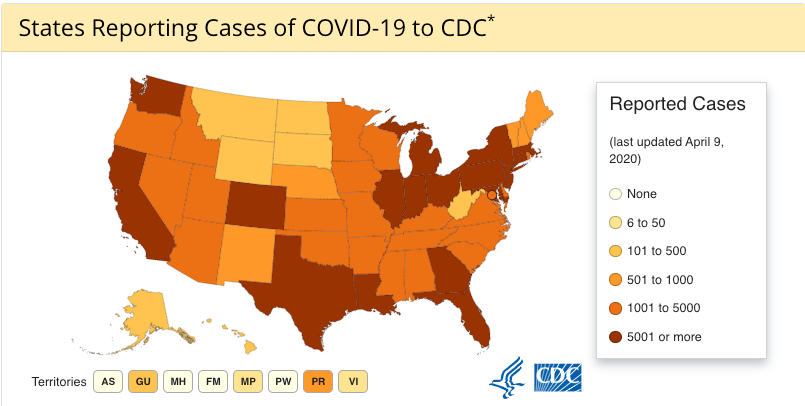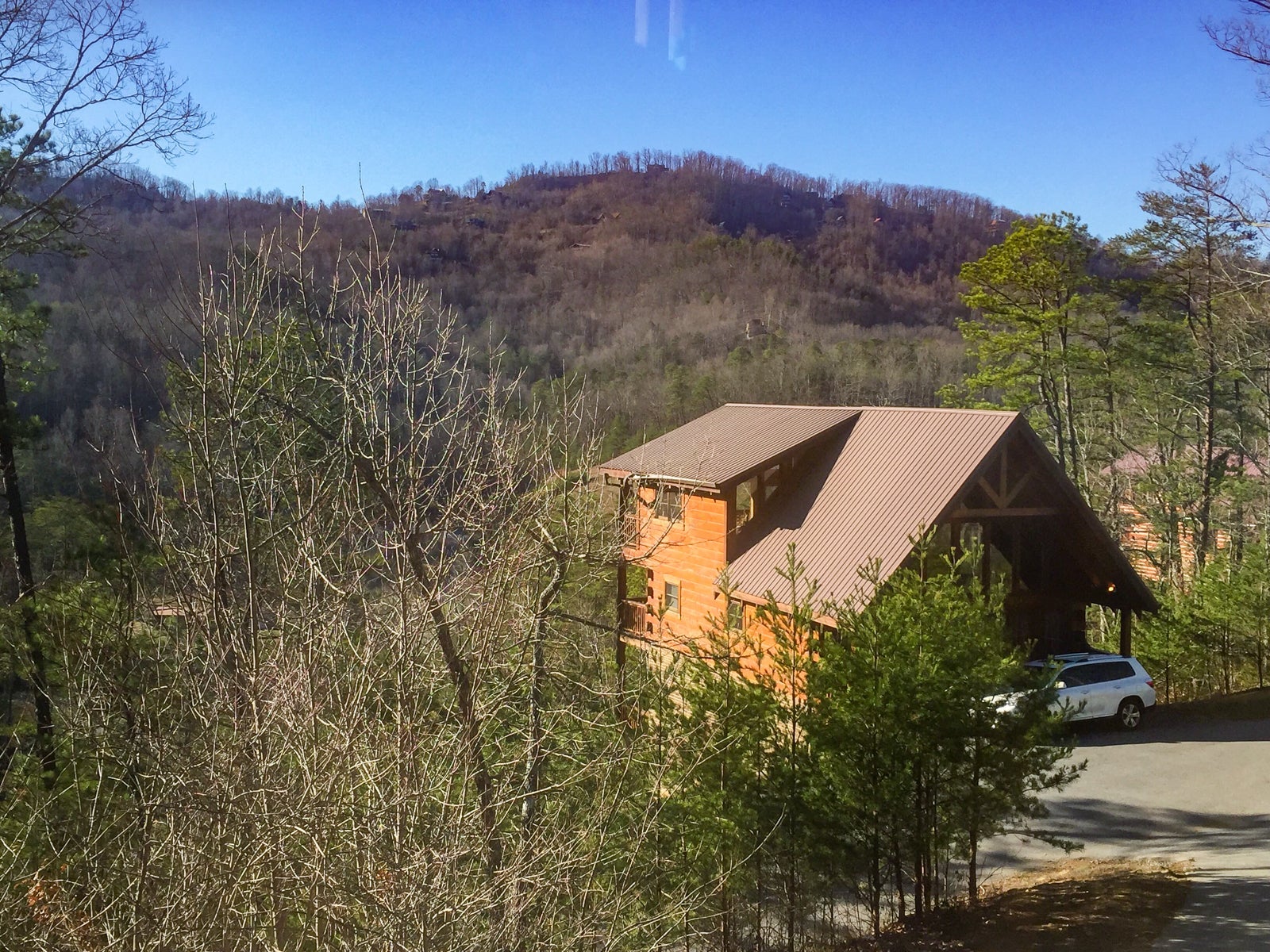Will you be able to take a summer vacation this year? Disease experts weigh in
Editor's Note
Editor's note: This post has been updated to reflect AA has not yet extended elite status.
Dr. Anthony Fauci, Director of the National Institute of Allergy and Infectious Diseases, told CBS Thursday that leisure travel might be back on the books by summer 2020 if the United States can maintain its current progress toward "flattening the curve" of coronavirus infection spread until the summer months.
Sign up for daily news, travel tips and more
"It can be in the cards," Fauci said regarding the possibility of a summer filled with traditional social activities such as vacations, baseball games, weddings or family reunions. But Fauci warned that the coronavirus "makes the timeline" on when it would be safe again to travel. Without the right precautions in place, he said, the U.S. would go right back to experiencing "spikes" of outbreak cases.
Related: When will we start traveling again? Here's a hint from the major U.S. carriers
Fauci also pointed out that the timeline for eliminating social distancing would be different from region to region, with some areas of the country returning to everyday life more rapidly than others.
But Crystal Watson, an assistant professor at Johns Hopkins' public health school, told CNN Thursday that "we're not there yet," referring to the nation's success in limiting the outbreak. Lifting non-essential activity bans would risk "a huge resurgence -- and much worse than what we've seen already," Watson said on CNN's "New Day."
Fauci's prediction seems optimistic in the face of what major U.S. carriers appear to anticipate. In an unprecedented move, Alaska Airlines, Delta, and United have announced elite status extensions for at least one additional year, while many airlines have extended generous change, cancellation and voucher policies. (We are still waiting to hear what American Airlines plans to do).
While this appears to be a boon for travelers on the surface, TPG's Zach Griff cautioned that this announcement is "nuanced," pointing out that these measures likely imply that airlines expect greatly reduced routes and traffic for many more months to come.

Will there be "safe" destinations?
Those who have already been hunkered down for a month, with at least many weeks to go, may have grabbed onto the idea of a summer trip like a lifeboat. The problem with trying to plan a summer vacation now is that the novel coronavirus threat can change daily. America's ability to "flatten the curve" enough for all of us to get back to normal depends on how well communities follow shelter-in-place guidelines and other safety measures designed to stamp out the transmission of the disease. That means certain destinations may start to see a decline in cases sooner than other places. However, that can all change in a hurry if those from a virus "hot zone" descend on a destination that previously had minimal transmission.
Related: 7 destinations without the crowds
If you hope to take a summer vacation, you may want to plan -- or at least double-check your plans -- at the last minute and look for places with fewer cases. You can monitor the case rate at the CDC's website.

Of course, all it takes is being in contact with one carrier that can transmit COVID-19, so this isn't a foolproof method. Choosing a close-to-home destination so you can eliminate as many points of contact as possible may also be a good strategy. For example, driving to a cabin within two hours of your home eliminates the need to visit an airport or even stop on the road along the way.
Before setting your plans in stone, check with your destination's local authorities to be sure you can travel there. For example, Hawaii has instituted a 14-day quarantine for anyone arriving to the islands. States currently even have quarantine restrictions for those driving across one state border to another.

Related: What to know if you're planning future travel now
What types of accommodations are best?
In addition to cabins in the woods, we are hearing of travelers considering RV travel, beachside vacation homes and less-traveled state and national parks. Motel-style accommodations where you don't have to walk through the lobby to access your room may also have some advantages. If you're uncomfortable with anyone coming into your room, tell the hotel that you're waiving housekeeping services during your stay.
Plenty of home rental companies and hotels have changed their booking and cancellation policies to be more favorable to the customer. But, before booking anything for the summer, carefully read the cancellation policy and be sure you're comfortable with it in the event that you may need to cancel or postpone the trip at the last minute. Unfortunately, current optimism about potential summer travel may or may not pan out in the long run.
Related: What to know about coronavirus hotel change and cancellation policies
Safety precautions for near-term travel
No matter if you're heading to the local grocery store or to a nearby beach house rental when restrictions are potentially eased in the coming months, you should take some of the same precautions.
Heed the CDC's recommendations:
- Stay at least six feet from other people.
- Avoid touching your eyes, nose and mouth with your hands.
- Wash your hands with soap and water often and rigorously for at least 20 seconds.
- Carry hand sanitizer that contains at least 60% alcohol and use that when you don't have access to soap and water.
- Wear a cloth face mask when you have to go out in public, like when picking up takeout food.
- When you check in to a hotel or home rental, clean and distinct frequently touched surfaces, like the work desk, and objects like the coffeemaker and TV remote. Be sure to disinfect the doorknob, light switches, sink faucets and basins, etc. (If you don't have any disinfectant, you can use a solution with 70% alcohol.)
All of these suggested measures may change by the time your summer trip comes around -- while others could be added -- so just be sure to stay up-to-date on current practices and do everything you can to keep your contact with others to a minimum.
Related: Guide to travel during the coronavirus
Bottom line
Everyone is asking, "Can I travel this summer?" And the answer may be a cautious and optimistic "maybe," at least for some of us to some destinations. Keep listening to government officials and research destinations that may make sense for a summer sojourn in our current more distanced realities. While a theme park visit may not be in the cards right away, a trip to a more secluded beach or mountains may be just what you need to recharge from your months spent at home once it is safe to do so.
Follow TPG's complete coverage of the coronavirus impact here
TPG featured card
at Capital One's secure site
Terms & restrictions apply. See rates & fees.
| 5X miles | Earn 5X miles on hotels, vacation rentals and rental cars booked through Capital One Travel |
| 2X miles | Earn unlimited 2X miles on every purchase, every day |
Pros
- Stellar welcome offer of 75,000 miles after spending $4,000 on purchases in the first three months from account opening. Plus, a $250 Capital One Travel credit to use in your first cardholder year upon account opening.
- You'll earn 2 miles per dollar on every purchase, which means you won't have to worry about memorizing bonus categories
- Rewards are versatile and can be redeemed for a statement credit or transferred to Capital One’s transfer partners
Cons
- Highest bonus-earning categories only on travel booked via Capital One Travel
- LIMITED-TIME OFFER: Enjoy $250 to use on Capital One Travel in your first cardholder year, plus earn 75,000 bonus miles once you spend $4,000 on purchases within the first 3 months from account opening - that’s equal to $1,000 in travel
- Earn unlimited 2X miles on every purchase, every day
- Earn 5X miles on hotels, vacation rentals and rental cars booked through Capital One Travel
- Miles won't expire for the life of the account and there's no limit to how many you can earn
- Receive up to a $120 credit for Global Entry or TSA PreCheck®
- Use your miles to get reimbursed for any travel purchase—or redeem by booking a trip through Capital One Travel
- Enjoy a $50 experience credit and other premium benefits with every hotel and vacation rental booked from the Lifestyle Collection
- Transfer your miles to your choice of 15+ travel loyalty programs
- Top rated mobile app


